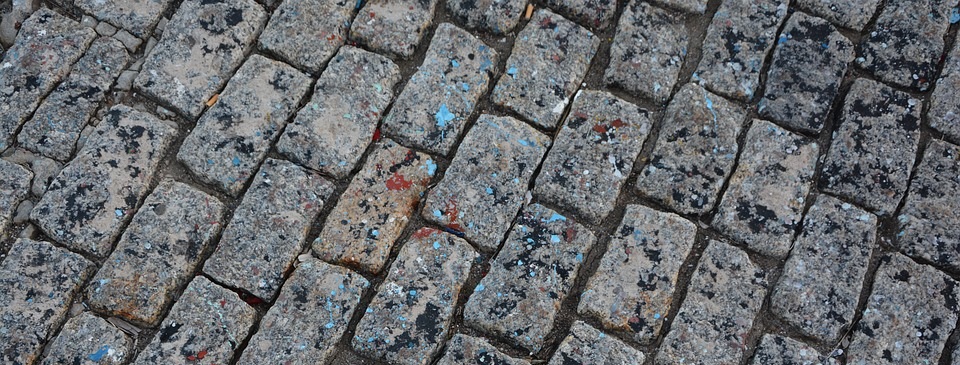Turks have been living in numerous geographies and been in interaction with many cultures and languages. Because of that, there are a large number of borrowings in the language. The interesting thing is that by time these words gain Turkish phonetics and evolve to fit into the mayor and minor vowel harmonies. (e.g. Asya, Avrupa) In this page, we are going to investigate Turkish borrowings that you won’t believe that they are actually borrowings!

Kaldırım: (pavement) If you think that this word is derived from the Turkish verb ‘kaldırmak‘, you are wrong. The opposite would be then, indirim? hehe. ‘Kaldırım’ is derived from Greek word kallidrómos (καλλιδρόμος) meaning ‘good/beautiful road‘. Kalo (beautiful) + drom (road); we encounter the same word ‘drom‘ in ‘hippodrome‘.
Boğa yılanı: (gopher snake) Gopher snake. These snakes kill their prays by squeezing them to death (boğmak). However, ‘boğa yılanı’ is definitely not derived from the Turkish verb ‘boğmak‘. They usually live in South Africa and Madagascar and can eat a Jaguar or a pig at a time. These snakes are called ‘boa‘ in the local language of the region. So, the correct writing would be only ‘Boa‘, as in ‘Piton‘ or ‘Anaconda‘. Yet ‘boğa yılanı‘ totally like a good fit with by a lucky coincidence.
Aferin: (well done) This word has been in Turkish for too long that, like many, it sounds like it is Turkish. The first appearance goes before 1500. It is borrowed from the Persian word āfirīn (آفرين) and by time, it evolves to fit in major vowel harmony. Its original meaning is ‘compliment’ in Persian which is now used as ‘bravo’ in Turkish.
Kilit: (lock) Turkish has borrowed this word from Persian kelīd (كليد), meaning ‘anahtar‘. Persian, on the other hand, has borrowed this word from ancient Greek kleid (κλεïς). The Greek word is derived from an Indoeuropean root *klau (also reminds us ‘to close’ or ‘la clave’ in Spanish). Anahtar, on the other hand, comes from Greek with the meaning of aniχtēri (ανοιχτηρι) meaning ‘açkı, açacak‘ (en. opener).

Menderes: Meandering water. (see the similarity?) The same word also exists in modern Greek today as méandros μαίανδρος. Turkish sources say that the word enters the ancient Greek as the name of a river in Istanbul (today’s Menderes river). Etymonline gives the following explanation for the word ‘meanderin‘:
from Greek Maiandros, name of a river in Caria* noted for its winding course (the Greeks used the name figuratively for winding patterns). In reference to river courses, in English, from 1590s.
(*Caria is an ancient region in Western Anatolia.)
Menderes in Turkish: Bir akarsu yatağının az eğimli koyak tabanlarında ve ova düzlüklerinde çizdiği S harfine benzeyen kıvrım.
Anadolu: The land between the Euphrates and East Aegean sea was called Anatolía (ανατολία) in Medieval Greek. The latest folk of Anatolia now call the same land ‘Anadolu’. The earliest appearance of the word is in Düsturname-i Enveri (1456). The Greek word is derived from the ancient Greek anatolē (ανατολη), literally meaning ‘rising’ since the sun rises from the east Aegean coast.
Efendi: (Master, sir) If someone calls your name, to say ‘I am here’, you’d say ‘efendim’ or If you don’t understand what is told, to make it repeat, you’d say ‘efendim’. This common and useful phrase actually comes from Medieaval Greek avthéntis (αυθέντης), meaning ‘royal’. (similar to Bey, let’s check its etymology next)
Bey: Mister, efendi. The word comes from Sogdian language which has been the medium of communication in the silk road until the 9th century. The roots of the word can be traced in the Avestan language and Sanskritic. (Indoeuropean languages)
Avanak:

Simpleton. This word is borrowed from Armenian (org: havanag յավանակ). The first appearance in the language is in 1876 (Ahmet Vefik Paşa, Lugat-ı Osmani), Lugat-ı Osmani defines the word as ‘fool person’. The original meaning in Armenian is donkey-foal. This Armenian word can be traced back until the Medieval Persian from 5 and 6th. centuries. In Medieval Persian it exists as yavān/yuvān (young), reminding us ‘civan’. (Civan: young, young man)
Temel: Base. The word comes from the Greek word themélio (θεμέλιο). Base of a sculpture is called ‘themélio’ in Greek. The first appearance in Turkish is in the 15th century of Ottoman Turkish which is quite early and today keeps the same meaning. It is surprising that the famous protagonist of Turkish jokes, Temel, takes its name from Greek.
Kermes: Kermiss, charity sale. We encounter the same word in many occidental languages. (Kermesse in Spanish and French) The first apperance in Turkish is in 1935. It is borrowed from French ‘kermesse’ which means ‘charity sales after sunday seremonial’. It is a compound word of Greek ‘kýrios’ κύριος (Gr. lord, god) and Latin ‘missa’ (masa, sunday seremonial) first appeared in German.
Credits for First, Second, Third photos.
Etymonline – Source for English words.
Etimolojiturkce.com – Source for Turkish words.





